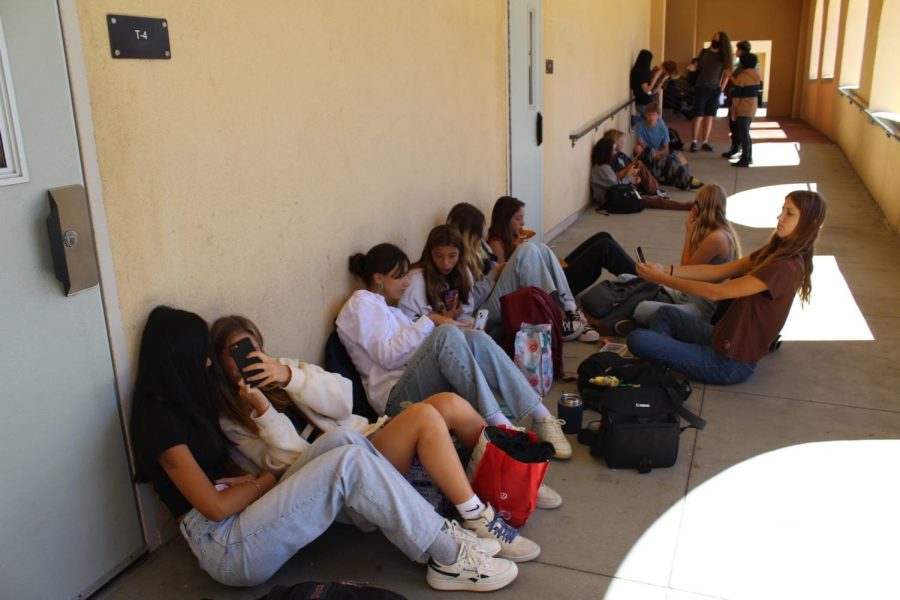Are Phones Taking Over the World?
Example of teenagers being absorbed into technology.
Do you own a smartphone? 95% of American teenagers claim to have access to a smartphone, and 45% report using the internet “very regularly.” Parents, educators, and lawmakers from all over the country are concerned about how much time children spend on screens. Many teenagers worry that they use their phones excessively.
What precisely are teenagers using their cell phones for then?
According to a 2018 Pew Research Center survey of 13 to 17-year-olds, the vast majority of teens who use cell phones claim they use them as a method to pass the time, and nine out of ten claims they do so frequently or occasionally. Similarly, high percentages of teen cell phone users say they at least occasionally use their devices to communicate with others (84%) or to discover new information (83%).
Teenage boys and girls are typically more likely to equally claim that they use their gadgets to interact with others.

Kennedy Kim, a freshman at Huntington Beach High School (HBHS) says, “Not having my phone made me feel isolated from everyone. I mean my main form of communication with people is through my phone.”
Although phones help teenagers connect with others, they can also be used as a tool to avoid in-person contact. Four in ten, or 43% of teenage smartphone users claim to use their devices frequently or occasionally to avoid social interaction. Teenage girls are also more likely to experience this than boys. 54% of teen girls who have access to a smartphone claim to use it frequently or occasionally to avoid social engagement, compared to the only 31% of teen boys who make the same claim.
Many teenagers now depend heavily on their phones as part of their everyday lives, and their connection with them can be harmful. According to the same survey, 72% of kids say they frequently or occasionally check their phones for texts or notifications as soon as they wake up.
Emily Hong, a freshman at HBHS says, “I go on my phone the moment I wake up to stay updated with everything.”
56% or more than half of teenagers link being without their phone to at least one of the following three emotions: feeling loneliness, upset, or anxiety.
“I think phones are great, but there can be a point where they turn hurtful, especially to teenagers at such a vulnerable age,” Mr. DeLazzer, a mathematics teacher at HBHS said.
It’s no secret that teenagers have complicated relationships with technology. They manage their social lives through numerous applications and social media platforms, they use technology to stay organized and on top of their many, many activities, and they are expected to use technology both inside and outside of the classroom to succeed.
Teenagers today deal with a lot of strain. Individuals use their phones to keep up with their hectic life, but sometimes their phone use is connected to recreational activities and might help them reduce stress. It can be challenging to prevent kids from using technology in a way that increases their stress levels; there is no clear-cut approach to stop youngsters from engaging in stressful technological activities.
Your donation will support the student journalists of Huntington Beach High School. Your contribution will allow us to cover our annual website hosting costs.
Thank you for supporting our program!



